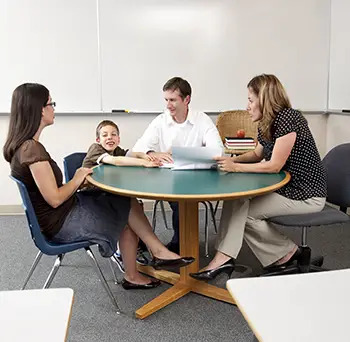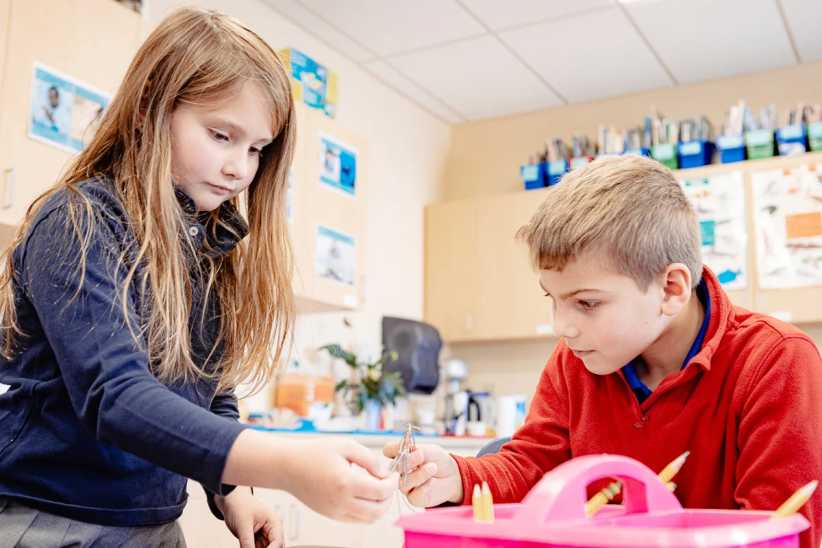We spoke to Doris M. Aptekar, Ph.D., a Long Island-based psychologist, to get advice about how to explain to children that everyone makes mistakes and teachers are sometimes wrong without the student loosing respect for the teacher.
 How do I explain to my child that teachers are just like everyone else (and sometimes wrong) without having him lose respect for his teachers?
How do I explain to my child that teachers are just like everyone else (and sometimes wrong) without having him lose respect for his teachers?
Relate to what your child knows. Give your child the example of when Mommy or Daddy did or said something wrong to someone, he or she apologized and thought “I wish I didn’t do that,” or “I hope they aren’t upset.” Explain that moms and dads make mistakes occasionally and so does everyone else, including teachers.
When a teacher makes a mistake, or an error, she or he will likely acknowledge it. If not, and the child comes home and shares that mistake with you, make sure to set a good example. Instead of devaluing the teacher, approach it as an opportunity to share information. How children approach people and things in the world depends on what they pick up from their parents—whether it’s taught passively or overtly. Let your child know that we all make mistakes, and in that mistake making, we learn that no one is perfect. Every mistake is an opportunity to learn and benefit and re-evaluate our thoughts, our feelings, and our judgments.
If my child has lost respect for his teacher, how can I help him build that respect again?
Whenever there is an incident, whether it’s grievous or in the imagination of the child, the parent needs to speak with the teacher. Let the teacher know how the child feels and discuss the incident because oftentimes things are misperceived—a loud voice could be deemed as yelling, a look can be deemed as being mean. In speaking with the teacher, the teacher becomes more conscious in their interactions with the child.
Then I would have a three-way conversation with the parent, the child, and the teacher to make sure everything is okay by being honest that there was this situation. The child can state why they were upset and the teacher can respond to it honestly, make an apology, and ask for forgiveness if they have in fact crossed boundaries and offended a child in any way. In that conversation of peacemaking, no one leaves until each person feels okay. Then, to make it symbolic, everything that was wrong should be written on a piece paper, crumbled up, and thrown in the garbage. That way there is a physical act that the child can witness and see that the problem is gone.
Doris M. Aptekar, Ph.D., has more than 35 years of experience working as a school psychologist, psychotherapist, and hypnotherapist with children and adults of varying needs. She currently serves Nassau and Suffolk counties.



















